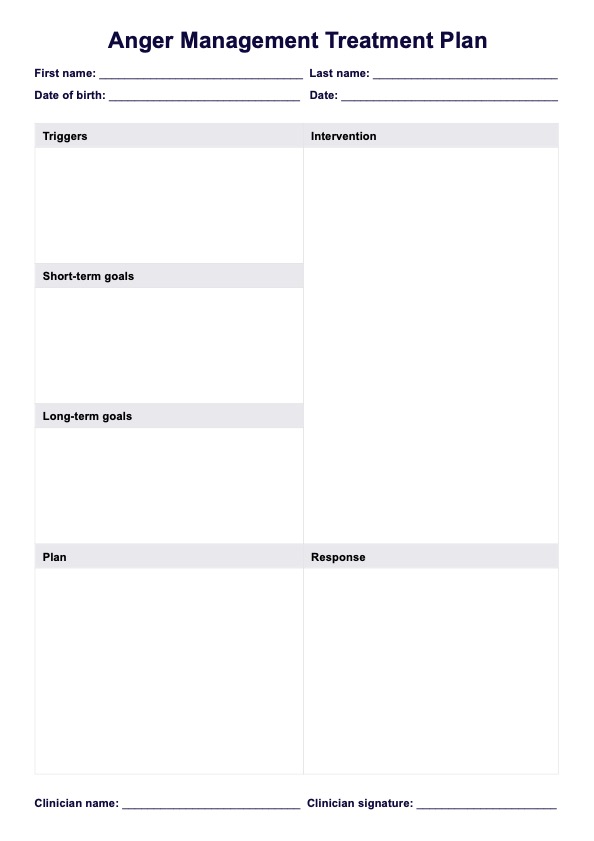There are many different ways to create effective anger management plans, and it is entirely up to you and your professional opinion as to what works best. Some fill out the section with cognitive behavioral therapy in mind, but choosing any other approach is also equally valid - so long as it matches the client's needs.

Anger Management Treatment Plan Template
Decrease the intensity of angry feelings, and work towards healthy cognitive functioning. Download our treatment plan for anger management, and strengthen the ability to recognize anger and track progress effectively.
Anger Management Treatment Plan Template Template
Commonly asked questions
This will differ depending on the practitioner and the number of issues present in the client session - however, a good rule of thumb is 1-2 pages. Anything longer is considered excessive, as you need to keep them concise.
Supporting evidence should go under the relevant heading, however, if this is too small for your supporting documents, it is completely okay to attach these at the back. This is especially useful for various types of therapies that involve worksheets and written exercises, which are quite common in anger management.
EHR and practice management software
Get started for free
*No credit card required
Free
$0/usd
Unlimited clients
Telehealth
1GB of storage
Client portal text
Automated billing and online payments











